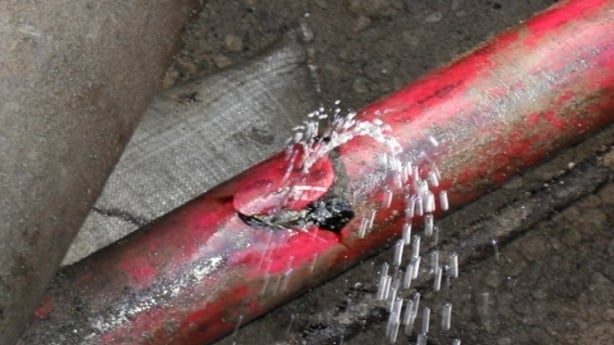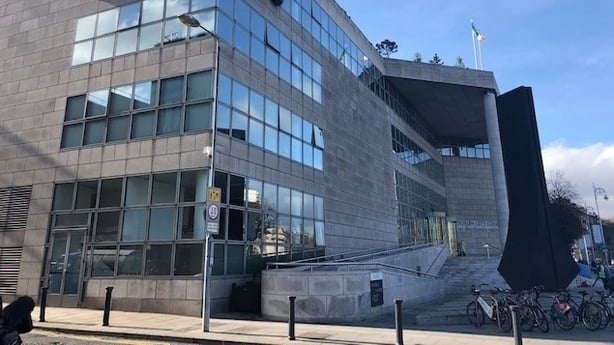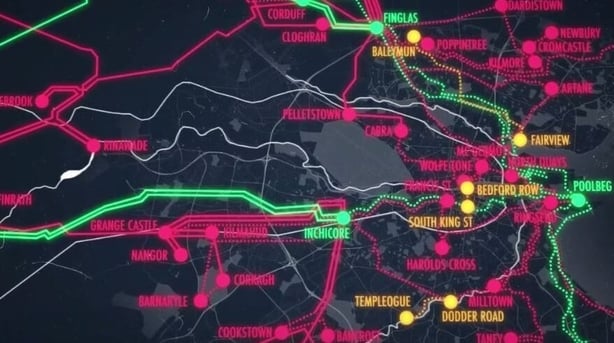Dublin City Council has asked the ESB to produce a "detailed impact assessment" of historic damage caused by the leaking of 1 million litres of oil from underground electricity cables going back over 20 years.
Dublin City Council indicated that it expects the ESB's impact assessment will include a plan to repair the damage arising from some of the cable leaks.
Council officials met with ESB representatives last week following the revelations about the oil leaks by RTÉ Investigates in a programme broadcast on June 5 last.
Watch RTÉ Investigates - The ESB Leaks
The programme revealed how the ESB was aware for two decades about the potential damage caused by the on-going leaks of a hazardous mineral oil from its underground cables, but had failed to notify any of the relevant authorities.
The cables, installed in the 1950s, have been leaking insulating oil at locations in Dublin which the company privately admitted posed a significant environmental risk.
The city council says it has now requested that the ESB produces a protocol, in agreement with the city council, for future reporting and responses to oil leaks from its underground cable network.
Until the protocol is established, it has asked that the ESB report all future leaks directly to the city council.
A spokesman for the council indicated it expects the ESB to carry out some remediation arising from damaged caused by historic leaks from the cables.
He said: "Dublin City Council is concerned, and will remain concerned until such time as a detailed impact assessment of all historic cable fluid leaks has been completed and the necessary remediation works implemented."

Last year alone, an estimated 45,000 litres of oil was leaked from the cables, without the relevant authorities being notified.
One of the cables, located beside the Grand Canal, near Haddington Road, was leaking continuously for three years. This was in spite of the location being given an environmental risk rating by the ESB of 9 out of 10, with a 10 rating posing the greatest risk.
However, this leak, along with dozens of other major leaks going back over 20 years, was not reported to the city council, the Environmental Protection Agency or Waterways Ireland.
Some of the leaks are known to have posed a significant risk to the canal, according to a confidential ESB report which has been seen by RTÉ Investigates.
This report warned the oil leaks "could present a very high environmental impact...the cable oil is not considered compatible with watercourses and canals."
One such location was beside the canal at Inchicore, where 20,000 litres of oil leaked from an underground cable over a ten year period up until the start of this decade.
An internal ESB report warned at the time: "Any leakage along this section of the canal immediately manifests itself as a pollution slick on the surface of this high amenity waterway."
However, the company did not report the leaks to the Environmental Protection Agency or Dublin City Council, and a further 10,000 litres of oil was leaked from the underground cable before it was finally fixed in 2014.
In response to the disclosures in the programme, the city council met with ESB officials and inquired about the impact of the cable leaks.

A city council spokesman said: "Discussions were centred on historic cable fluid losses, and the reporting and remediation works for these historic cable fluid losses, and any future cable fluid losses.
"A scoping report covering a detailed impact assessment of historic cable fluid losses has been requested."
The council said it has requested the ESB to report all future oil leaks. The spokesman added: "Dublin City Council is concerned about the non-reporting of cable fluid losses as required under the Water Pollution Act."
However, in spite of its request for information, the council says it is still waiting for formal notification from ESB networks of any existing underground cable fluid leaks. Up until two weeks ago, it’s believed there were 11 such leaks in the city.
Since the broadcast of the programme, RTÉ Investigates – The ESB Leaks", the ESB chief executive Pat Doherty admitted: "As the CEO… I found it difficult to watch the programme.
"The issues raised in the programme show us falling short of the standards that we have set for ourselves. Our values have taken a bruising."
The programme included an interview with a company employee-turned-whistleblower Seamus O'Loughlin, who was moved from his position within the ESB after he tried to expose the scandal.

O’Loughlin, the company’s technical development manager, was astonished when he examined its internal files on the leaks which had never been made public.
He said: "It was worse than anything I expected…upwards of a million litres of oil in a 20 year period. I just couldn’t compute it to be honest. I was astounded."
O’Loughlin will be the first person to address a number of hearings next month at the Oireachtas Committee on Communications, Climate Action and the Environment.
The Committee is to hold a number of hearings into the disclosures about the oil leaks after a request to do so by Fianna Fáil Deputy Timmy Dooley received cross party support. The hearings will start on July 9.
The committee chairperson, Fine Gael Deputy Hildegarde Naughton has confirmed that it has put the ESB on notice that it will be requesting the company to attend the committee hearings.
The Environmental Protection Agency has launched an investigation into the disclosures and is awaiting a detailed response from the ESB.






